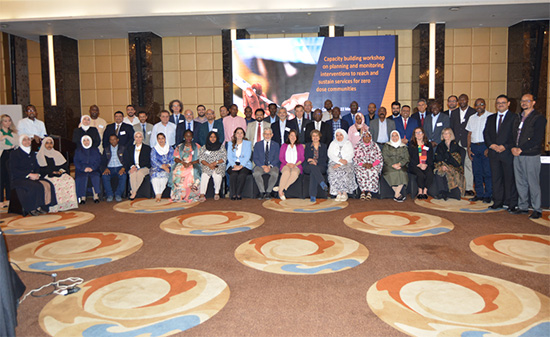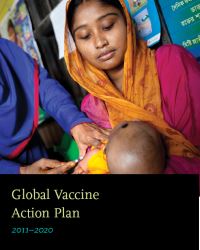
28 March 2023 – WHO held a capacity-building workshop in Cairo, Egypt, on 19 ̶ 22 March 2023, to support countries in the WHO Eastern Mediterranean Region to plan and monitor interventions to reach and sustain services for zero-dose communities.
Zero-dose children are those who have not received any routine vaccines. They indicate that communities lack access to primary health services. Focusing on zero-dose children is particularly important because those who are reached with the first vaccine are highly likely to also receive the remaining vaccines.
According to WHO and UNICEF estimates of national immunization coverage, 11% (around 2.1 million) of children in the WHO Eastern Mediterranean Region did not receive any diphtheria, tetanus toxoid and pertussis (DTP) vaccination in 2021.
The workshop was attended by participants from the nine countries from the Region with the highest burden of zero-dose children, which are Afghanistan, Djibouti, Iraq, Libya, Pakistan, Somalia, Sudan, Syria and Yemen, as well as WHO and UNICEF staff. Around 90% of zero-dose children in the Region are from these nine counties. The populations of these countries are often living in a context of fragility, conflict and violence, where the health system has been disrupted, immunization programmes are poorly performing and with low coverage and multiple vaccine-preventable disease outbreaks.
During the workshop, the participants received the knowledge and skills needed to correctly identify, locate, track down and measure zero-dose children/communities using the most recent data and tactics.
Reaching the most marginalized communities requires strengthening primary health care systems, building and sustaining community demand, addressing gender barriers and using innovation to ensure that immunization services and other essential health services reach children. The global goal is to reduce the number of zero-dose children by 25% by 2025 and by 50% by 2030.
Increasing overall immunization coverage and achieving equity in immunization can also be the first steps towards strengthening primary health care services overall and achieving universal health coverage within countries.







